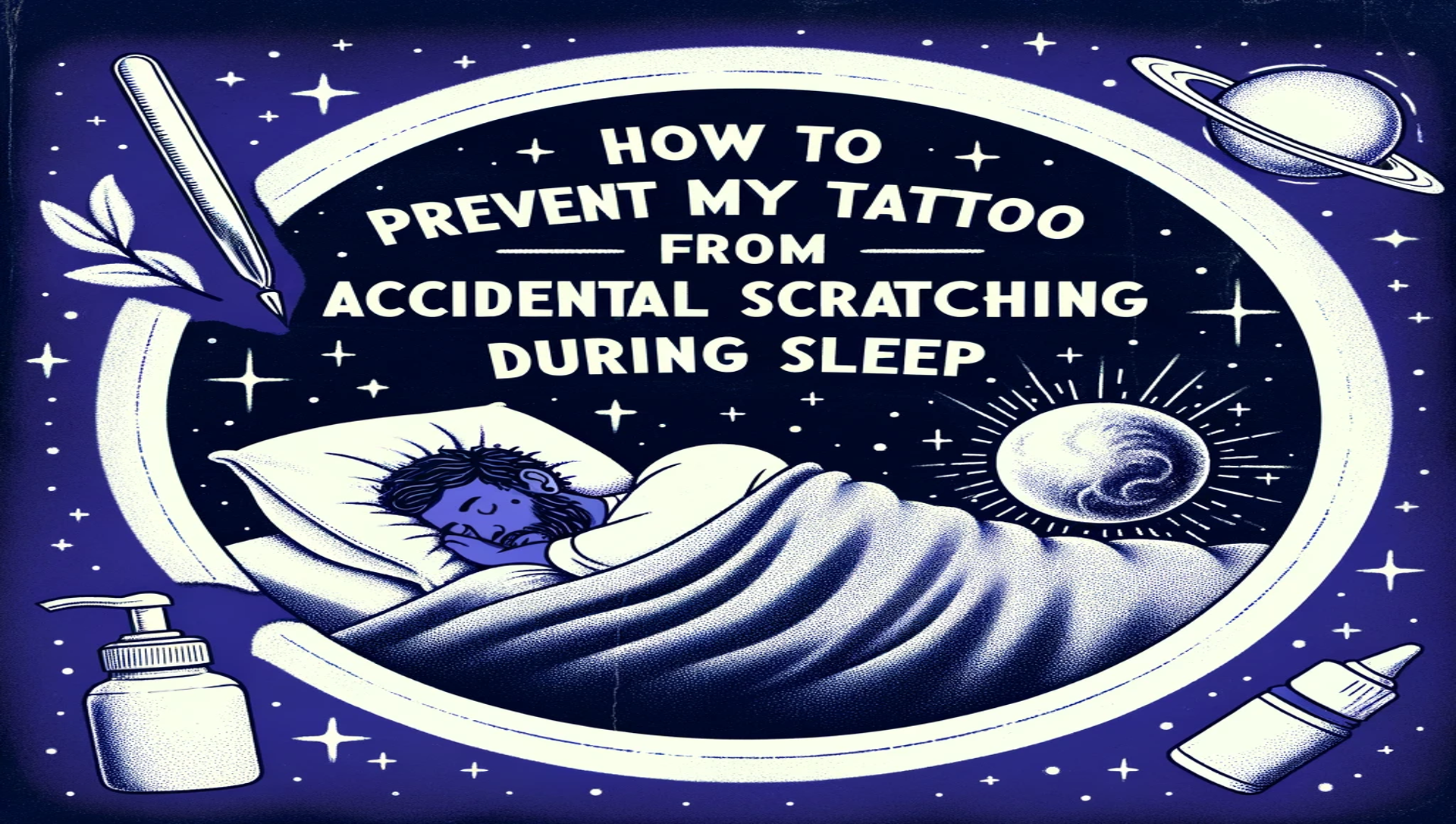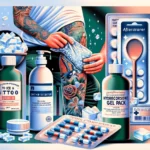Getting a tattoo is an exciting yet painful procedure. After getting a tattoo, aftercare of it is even more important. It is normal for tattoos to scab after some time. But with that scabbing, the itchy sensation is so annoying.
And keeping your fingers off of picking scabs is even more difficult. We all resist scratching the tattooed skin when we are awake, as the tattoo artists suggest. But when we sleep, we accidentally scratch it. So what happens if you unintentionally scratch the tattoo? Should you be worried? Let’s explore!
| Publisher | Alex Martin |
|---|---|
| Focus | Accidental Scratching During the Sleep |
| Category | Healing & Complications |
| Article Type | Informative Guides, Tips & Advice |
| Update Frequency | Monthly to reflect new insights and trends |
What Happens If I Accidentally Scratch My Tattoo in Sleep?
Whenever you scratch a tattoo be it intentionally or unintentionally the worst of all that can happen is that you get missing ink. But it is not common for the tattoo to scratch to such an extent so it loses ink.
The tattoo ink is deep down in the skin’s second layer. And for you to lose the ink you will need to scratch it so hard that it starts blessing. So losing ink of the tattoo will be the least of the problems with accidentally scratching. So, scratching doesn’t ruin your tattoo for the most part.
Moreover, you should look for bleeding and oozing. If the scratching tattoo leads to leaks from the tattoo you should be ready to talk to the tattoo artist. However, for the minor scratching, there is no issue.
Another thing with scratching a tattoo is that you can increase its healing time. When the scab comes up on the tattoo it means it is healing well. But when you remove that scab prematurely as of scratching you add up more weeks to its recovery. So it is better to stay off of scratching.
What Should I Do to Avoid Scratching Tattoos During Sleep?
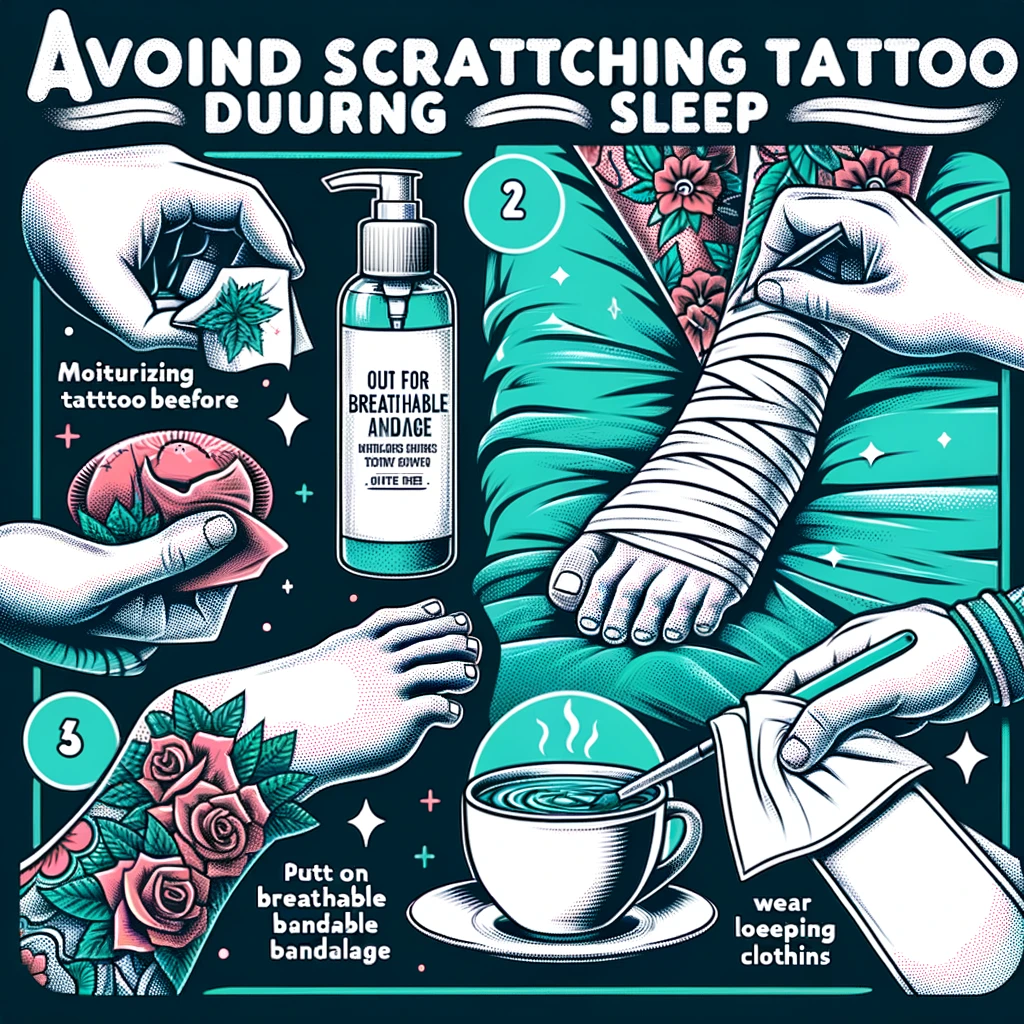
When we are awake, we can easily resist the urge to scratch a tattoo. But when sleeping, it is a real deal to keep your hand off scratching. And things get worse when you’re a first-timer. But don’t worry, we got you covered regarding this problem. Read out the below and enjoy better healing:
Moisturize a Tattoo Before Bed
Your tattoo scratches more when the skin on the tattooed area is dry. So to cope with it, you should apply moisturizer to it. Follow a proper cleaning routine and moisturize the skin of the tattoo before bed. You can minimize the chances of accidental scratching. Apart from this, you can also apply some healing ointments as well. The cerave and carmax can help you well.
Put on A Breathable Bandage
It is best to cover up your tattoo when going to sleep. You can use a thick material to cover it. However, make sure that the material is breathable. Bandages like bandanas and Saniderm can be of great help. Apart from that you can also use the gauze to cover it. However, make sure to get a green signal from the tattoo artist first regarding covering your tattoo.
Don’t Wear Restrictive Clothes
If you wear tight or restrictive clothes around the tattoo area, it will itch more. It is better to cover your tattoo with loose cotton clothes. For instance, if you have a tattoo on your wrist and you put on a tight-sleeved sweater, it will make for the worst itching. And if you wear a loose T-shirt, it will be much more serene.
Choose a Comfortable Sleeping Position
Your sleeping position can also help reduce itching in tattoos. If you sleep where the tattoo rubs against the skin, it will make for itching. So make sure you sleep in a style that lets air flow through the tattoo.
What to Do in Case of Scratching Your Tattoo While Sleeping?
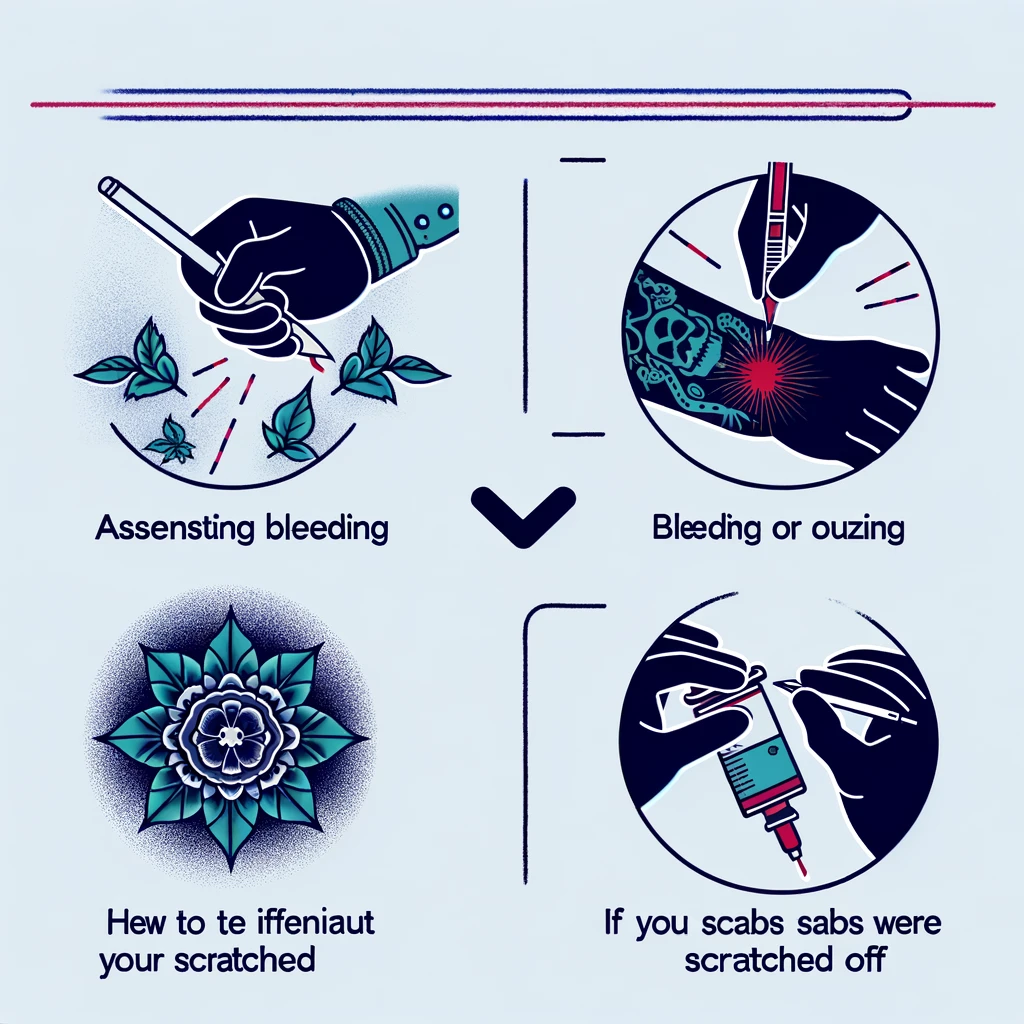
So you accidentally scratched a tattoo in your sleep now, what can you do to remedy it?
First, you should monitor the extent of scratching.
- Do you scratch the scabs, or is it just a minor scratch?
- Is your tattoo bleeding or oozing?
- Do the scabs you scratched contain blood or not?
If you’re scratching did not peel the scabs, then no need to worry. However, bleeding and oozing mean you have extended the healing time. Moreover, there is a risk of infection. So, to cope with it, you should:
- Gently clean the tattoo area. You can use mild soap and lukewarm water. Gentle cleanse it and pat dry it. But remember to sanitize your hands before cleaning the tattoo. Also, don’t apply a direct stream of water over the tattoo, as it will lead to more damage. You can use your hand’s cup to pour water.
- After applying a thin layer of antibiotic ointment or any moisturizer such as petroleum jelly, it will moisturize the area and minimize itching. Apart from that, you can use your tattoo artist’s recommended ointment, if any, to heal the skin.
- If you see scabs or skin peeling around the tattoo, don’t pick it up. It will only add up to disaster. It is better to seek your tattoo artist or dermatologist’s help to minimize the risk of infections.
How to Deal With an Itchy Tattoo? Reasons of Itching
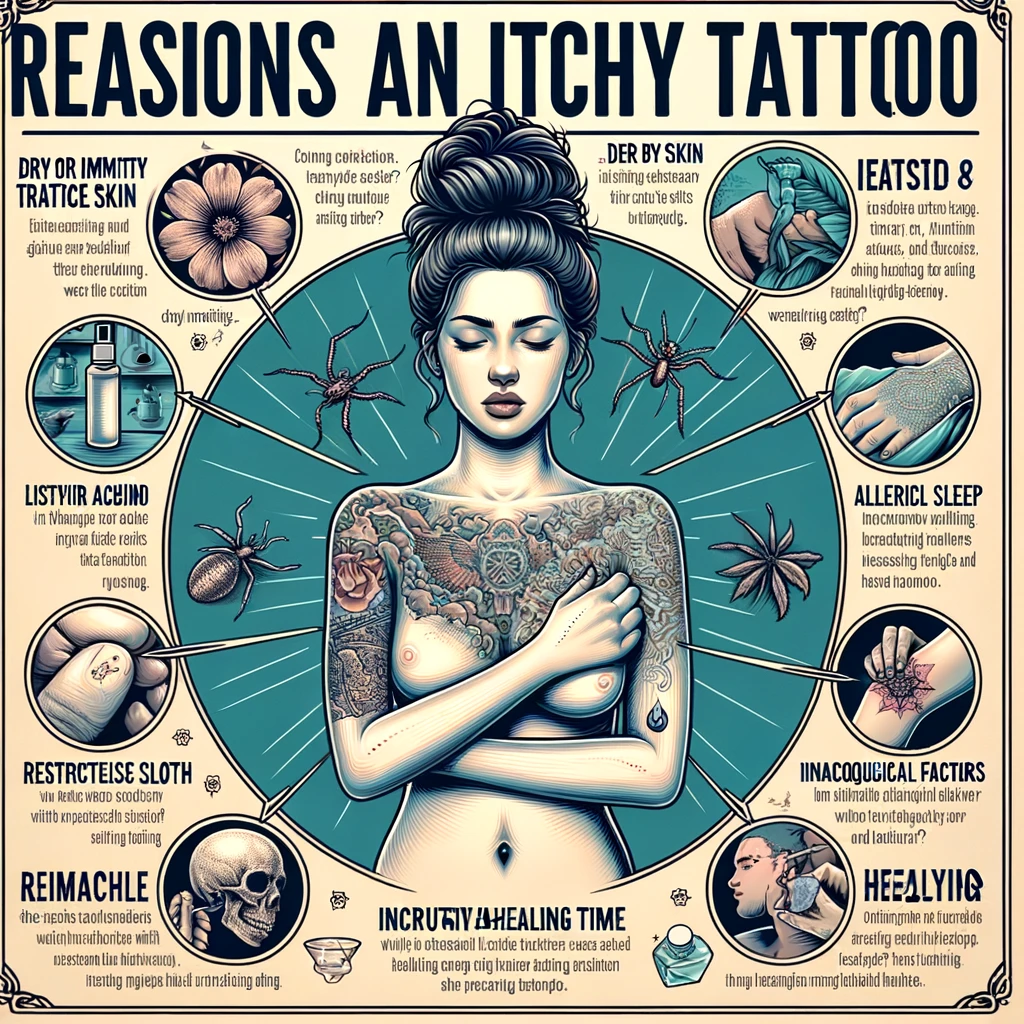
Itching is a normal thing with healing wounds, but for tattoos, it’s difficult to deal with. So here we are listing some of the factors that lead to tattoo itching along with their remedies.
Dry or irritated skin around the tattooed area
It is usual for the healing skin to get dry. But that dryness brings on endless scratching. So, to cope with dryness, it is best to moisturize a tattoo. You can use any fragrance-free moisturizer cream and apply a thin layer regularly.
Allergic reactions
Sometimes, you develop allergies to either tattoo ink or tattoo aftercare products. So, it is better to do a patch test for the tattoo ink and aftercare products both.
Restless sleep or tossing and turning during the night
If you sleep rough at night, it means you rub and scratch the tattoo more. So, to cope with it, you should find a comfortable sleeping position. Don’t toss or turn a lot in your sleep.
Psychological factors such as stress or anxiety
If you get a tattoo for the first time, it is okay if you get anxious or stressed about its aftercare. And with such anxiousness, you can unintentionally scratch the tattoo. To overcome it, take a deep breath and relax.
Restrictive Clothes or harsh bedspreads that can rub against the tattoo
As I mentioned earlier, if you wear restrictive clothes, it will make for more itching. So make sure you have loose clothes around the tattoo. Apart from that, make sure the clothes don’t rub against the tattoo to prevent itching. Besides, having harsh bed sheets can also make things worse, so ensure you take care of these things.
Inadequate healing time for the tattoo
Your tattoo needs proper healing. If you don’t care for a tattoo for at least two weeks, it can develop itching. Make sure you don’t expose your tattoo to direct sunlight for as long as two weeks. Moreover, you should give it proper healing time to minimize the risk of itching.
Uncomfortable or itchy sensation caused by the tattoo healing process
Itching is normal as your tattoo heals. Although the itching right after the ink work can be a risk after two weeks, it is not a big deal. It is normal for tattoos to itch when scabs peel off themselves. Make sure to clean and moisturize it already.
Is covering my new tattoo during sleep a Good idea?
Yes, it’s perfectly fine for you to cover the tattoo at night. As the initial tattoo aftercare, most tattoo artists cover the tattoo with Saniderm. However, you should also cover the tattoo with gauze or breathable bandage to make sure it keeps from scratching. You can also ask your tattoo artist for specific bandages to cover the tattoo.
Conclusion
Accidentally, itching your tattoo in sleep is normal. And for the most part, you don’t need to worry. However, if you see blood, oozing, or scabs containing ink, you need to rush to the tattoo artist. He/she will assess it for the rework or infection and better guide you. Moreover, to prevent accidental scratching, you should cover it with breathable materials.
